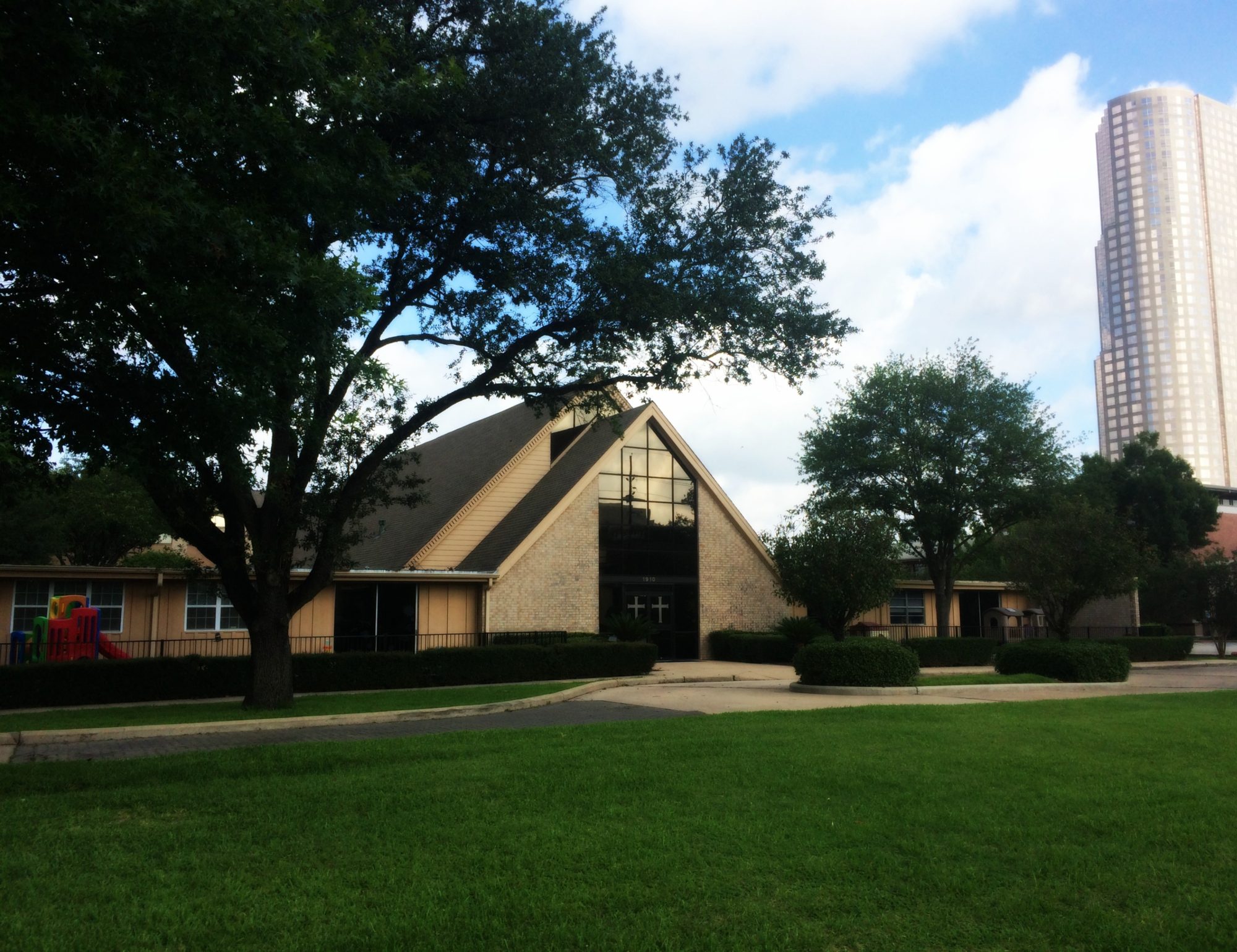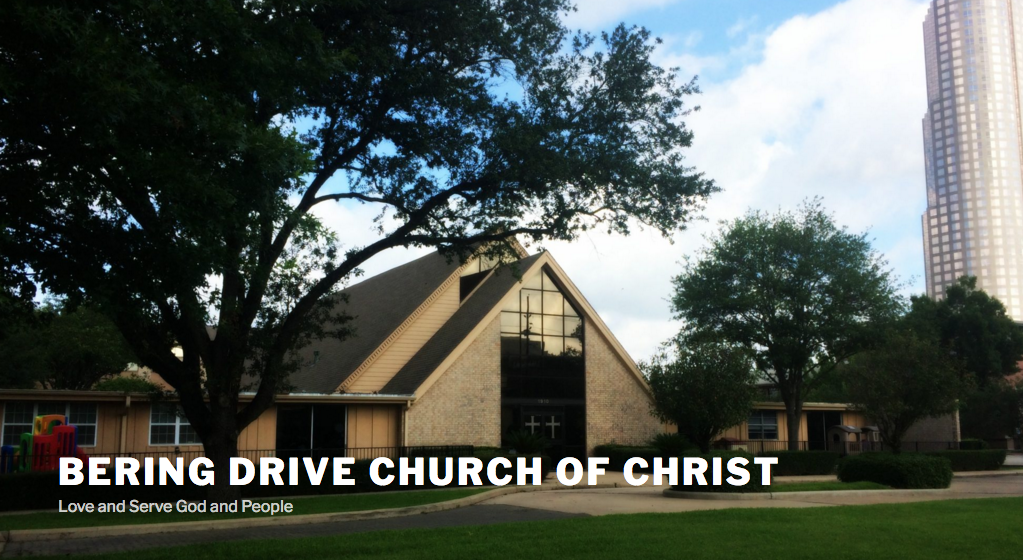Some Psalms do not resolve. They simply pray to God, sit, and wait upon the Lord.

Love and Serve God and People
Some Psalms do not resolve. They simply pray to God, sit, and wait upon the Lord.
This is the third sermon in our worship series, “Homeward Bound,” which reads the “Songs of Ascent” in Psalms 120-134 as songs about a return from exile, our hope in the Lord.
This is the second of 15 sermons that will form “Homeward Bound,” our series of hope, our return from exile according to the songs of Psalms 120-134.
The opening sermon in our series, “Homeward Bound,” as we anticipate one day being back together at Bering.
The video linked below is a 20-minute explanation of the upcoming series, and why it is important to us as the people of God. It begins with a less-detailed explanation, however. So if you just want to watch the first few minutes for the setup, feel free to do so.
With the public reemergence of racist groups in the United States, the church may think it is our job to return hate with hate. Not according to Jesus. If a given church is not already practicing the opposite of hatred, speaking out against violence merely comes across to non-church types as opportunistic. Moreover, if a church is not clearly at all times choosing mercy over sacrifice we have much bigger issues to address than what to say in the face of evil.
With that said, recent events in Charlottesville, Virginia, along with not so recent events like the Oklahoma City bombing in 1995 and the bombing of the 16th Street Baptist Church in Birmingham, Alabama in 1963 when four little girls died, all tie back to what results when a group of people choose sacrifice over mercy, talking over listening, and yes, hate over love. In no way is this the way of Jesus.
In Jesus’ Sermon on the Mount in Matthew 5-7, Jesus speaks to the higher calling of loving our enemies. It was unpopular when he said it, and it is obviously still unpopular. Jesus begins by alluding to the conventional wisdom that seems common to human practice. “You have heard that it was said to love your neighbor and hate your enemy.” I have a feeling that some people in the audience that day shouted a collectively hearty “Amen!” I picture Jesus pausing a moment for effect.
Wait for it.
And then… “But I tell you, love your enemies and pray for those who persecute you.”
Abject silence. No “Amens” on that one.
Keep in mind that Jesus said this while his homeland was occupied by Rome. But I do not think Jesus’ statement was aimed at the Romans, or at least not merely at them. Not that simple. Jesus may have been telling his people to love and pray for their own who colluded with the Romans. Their brothers who collected taxes for Rome. Their children who reported unlawful behavior to the powers that be that got them in trouble. Roman sympathizers who wanted nothing more than to guarantee their own security. Men, women, and children who raised salutes as the occupying forces passed by in their perverse parades. Those who shouted in manufactured solidarity, “We have no king but Caesar!”
Love your enemies.
The church of Jesus in 2017 has a tough road ahead. Of course we must speak out against hatred. Of course we must never live in such a way that displays evil. But we have one more even tougher job than that.
We must learn how to be united in a world divided.
The church of Jesus has practiced division far more than we have practiced unity. Drive down any given thoroughfare in the United States and you are likely to see all kinds of Christian buildings with differing brand names. What kind of message does this send? It sends a message of division.
Our divisions are a direct result of we as churches spending our time answering questions that the world is not asking. We have divided over our own issues when most people are just trying to figure out whether God is actually there, and if so, does God actually care?
We have gone the way of the world on this one by thinking that we have to create just the right church. We have gone the way of the world by giving in to the Christian advertisements that tell us that we have to find the church that is just right for me. But in so doing, if you manage to find just the right church, then if you stay with that church for more than a few years, they will most likely say something or do something that you will not like, that you will disagree with and think, “Is this the wrong church for me?”
I am the chief of sinners on this one. I have spent my ministry career banging my heart against wall after wall. Only now am I beginning to realize that the church of Jesus needs to be about more than my own preferences, and maybe even more than my locked down interpretations on my favorite issues.
 This is not to say that a church should not have standards. If a church chooses hatred over love, that is not the way of Jesus. If a church chooses sacrifice over mercy, that is not the way of Jesus. When a church is more concerned with itself than it is with living Jesus, well, then that is not a good thing at all.
This is not to say that a church should not have standards. If a church chooses hatred over love, that is not the way of Jesus. If a church chooses sacrifice over mercy, that is not the way of Jesus. When a church is more concerned with itself than it is with living Jesus, well, then that is not a good thing at all.
And that is where we are called to engage the world.
If the church of Jesus wants to do something truly great, then perhaps we should start by not claiming to be so great. Humility over relevance. We probably owe the world an apology for allowing ourselves to become so divided in the name of Jesus.
We need to tell the world that we are sorry for those times when we have returned hate for hate.
We need to tell the world that we are sorry for those times when we have practiced law instead of grace.
And then, when the world asks what all of that means, our job will be something more than a display of yet more words. It will be on that day when we can say united, “Here, we may get this wrong at first, but let’s just try this together.”

Perhaps you noticed the new look of the website. A new look, a little more security, and more accessible web presence are the kinds of things we have to mind in this age of ever-important websites. But the reasons for our website, our church, and our life of welcome are all tied to a single purpose: We want to present the story of God’s salvation among us.
We live to tell the story of Jesus. Our church is a family-sized group of people who want to welcome everyone in the same way that Christ welcomes us. And when we say everyone is welcome, we mean it.
Enjoy the new look and new content of the website. But then join us on Sunday mornings to see what this looks like in person.
Our family has so much to share.
Classes for all ages begin at 9:00 a.m. every Sunday morning.
Worship on Sunday mornings begins at 10:15 a.m.
Other meetings include our small groups in homes on Sunday evenings, Women’s Bible Study at 10:00 a.m. on Wednesday mornings during the fall and spring, and other get-togethers for lunches, retreats, and family events.
On any given Sunday morning, you can see a Bering member grab a songbook, open the front cover, and extract a 3-by-5 card from what looks like an old-fashioned library card pocket. The member scrawls a name on one side of the card and then flips it over to write a message of encouragement.
In a time when social media enables people to send messages instantly to others, Bering’s little missives of encouragement continue to uplift church family members and those they care about via snail mail.
It’s a simple concept that has stood the test of time for 30 years.
The brainchild of Samira Fitts, the Encouragement Ministry at Bering Drive Church of Christ began in 1985, after Samira read a book entitled Strengthening Your Grip, by Charles Swindoll. One of the book’s chapters discussed the importance of encouragement and how a church in Oregon had used cards to spread encouragement among the congregation.
Known for sending her own cards of encouragement, Samira recognized how imparting uplifting words is a God-given ministry. “We are never more Christlike as when we are encouraging others,” Samira says. “God can use us as a vessel of encouragement, and the work of the Holy Spirit can flow through us to those who need encouragement.”
Samira says she had been “praying to do something at Bering,” and starting an encouragement ministry seemed like an answer to that prayer. So at a mid-week visit to the church office, she discussed the idea with Bill Love, Bering’s minister at the time.
“He wanted to start it the next Sunday!” Samira recalls, her whispery voice crescendoing to a near-shout. Samira first had to present the idea to the elders, who quickly approved it. Cards had to be printed and a system and budget worked out. Gerald Robinson, a Bering member who had a printing business, printed a supply of cards that Pat Schrader designed. Samira would address the cards to be sent with postage from the church office.
Samira felt then, as she still does, that during communion was the best time to set aside for writing cards. During that time of reflection, “we concentrate on what the Lord has done to encourage us,” Samira says. “It’s not so much about people being encouraging as it is being vessels through which God can encourage others.”
From the very first Sunday the cards were introduced in March 1985, the Encouragement Ministry succeeded. In a short time, a few hundred cards were being mailed each week, and by 1988, the ministry was sending out an average of over 1,000 cards a month.
Writing encouragement cards is now an integral part of the worship service. Each week Bering members write messages to encourage the sick, the lonely, the hurting, and the incarcerated. Members send cards to celebrate someone’s birthday, anniversary, birth of a baby, a new house, a new job, retirement, or an honor.
The list of reasons to write a card is endless. The purpose in writing one is scriptural: to build up one another (I Thes. 5:11).
Although hundreds of Bering members have sent thousands of cards in the past three decades, only God knows the impact the encouraging messages have had on the recipients. We have heard stories:
A widow said the cards she received following her husband’s death filled a garbage bag—and it did not go into the trash. She read every card. Now remarried, she still has the bag more than 25 years later.
No doubt there are many more stories that have been or could be told.*
As one of the stories above illustrates, often people remember someone who has never set foot in the church building. “The words of encouragement bless many beyond the walls of our church, as well as our family at Bering,” Samira says.
The Encouragement Ministry has gone beyond the church walls in another way. Visitors who observe the practice at Bering have taken the idea to their home congregations and called for guidance on how to set up an encouragement ministry. It is not known how many churches today have adopted similar ministries.
It is clear that Bering has this ministry well oiled. After years of doing all the ministry mechanics, Samira now has a team of 10 women who sort the cards, address them, and stamp the envelopes. In 2014 they mailed approximately 7,600 cards. Samira still oversees the ministry, making sure that a team member is assigned each week and that the cards are available in the pockets of the church hymnals.
Because next Sunday, just like every other Sunday for the past 30 years, Bering members will write more encouraging words to bless others.
 You sit and listen across a couple of plates of Chinese food to the story of God. It was truly a sweet-and-sour communion as I sat with this preacher who dared to tell the story of God in the 1960s, a God whose gracious redemption refused even then to remain silent, no matter how many people try to reign it in and put it in a neat-and-tidy-easy-to-control box. Dwain talked about calling the church to renewal in the 1960s since many of our number were leaving at that time because of strictures that were holding us back. And here we are almost fifty years later… saying the exact same thing.
You sit and listen across a couple of plates of Chinese food to the story of God. It was truly a sweet-and-sour communion as I sat with this preacher who dared to tell the story of God in the 1960s, a God whose gracious redemption refused even then to remain silent, no matter how many people try to reign it in and put it in a neat-and-tidy-easy-to-control box. Dwain talked about calling the church to renewal in the 1960s since many of our number were leaving at that time because of strictures that were holding us back. And here we are almost fifty years later… saying the exact same thing.
I am so thankful for people like Dwain and Barbara Evans and so many others who told the story of God when it was dangerous to tell the truth. Their work and many others like them paved the way for those of us in congregational ministry who get to say and do things they prayed would happen some day.
I am so thankful.
I mean, can you imagine a church these days where people are not allowed to lead prayers during worship because of the color of their skin?
Can you imagine a church these days that emphasizes what is wrong with all the other denominations?
Can you imagine a church these days that would not allow a woman to lead singing with a voice given to her as a gift from the living God?
Can you imagine a church these days that is concerned with anything other than God’s healing redemption?
We are finally past all that.
Right?